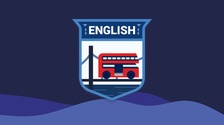多彩な 英語 講師陣から検索…
20232 人が参加しています

#EnglishLeague
20232 人が参加しています
Welcome to the English Language League! Meet other learners, get advice and motivation, and be part of the English learning community.
#EnglishLeague
Welcome to the English Language League! Meet other learners, get advice and motivation, and be part of the English learning community.
すべて
さらに表示

